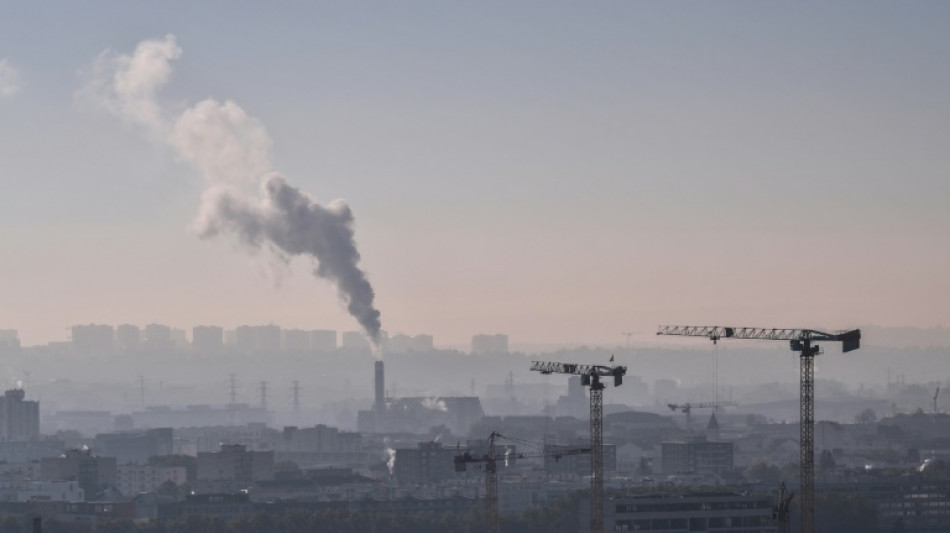
-
 Iran orders talks with US as Trump warns of 'bad things' if no deal reached
Iran orders talks with US as Trump warns of 'bad things' if no deal reached
-
From 'watch his ass' to White House talks for Trump and Petro

-
 Liverpool seal Jacquet deal, Palace sign Strand Larsen on deadline day
Liverpool seal Jacquet deal, Palace sign Strand Larsen on deadline day
-
Trump says not 'ripping' down Kennedy Center -- much

-
 Sunderland rout 'childish' Burnley
Sunderland rout 'childish' Burnley
-
Musk merges xAI into SpaceX in bid to build space data centers

-
 Former France striker Benzema switches Saudi clubs
Former France striker Benzema switches Saudi clubs
-
Sunderland rout hapless Burnley

-
 Costa Rican president-elect looks to Bukele for help against crime
Costa Rican president-elect looks to Bukele for help against crime
-
Hosts Australia to open Rugby World Cup against Hong Kong

-
 New York records 13 cold-related deaths since late January
New York records 13 cold-related deaths since late January
-
In post-Maduro Venezuela, pro- and anti-government workers march for better pay
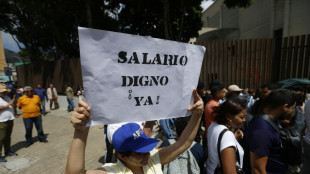
-
 Romero slams 'disgraceful' Spurs squad depth
Romero slams 'disgraceful' Spurs squad depth
-
Trump urges 'no changes' to bill to end shutdown
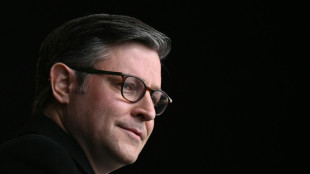
-
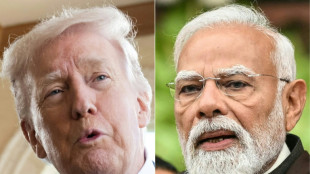 Trump says India, US strike trade deal
Trump says India, US strike trade deal
-
Cuban tourism in crisis; visitors repelled by fuel, power shortages

-
 Liverpool set for Jacquet deal, Palace sign Strand Larsen on deadline day
Liverpool set for Jacquet deal, Palace sign Strand Larsen on deadline day
-
FIFA president Infantino defends giving peace prize to Trump

-
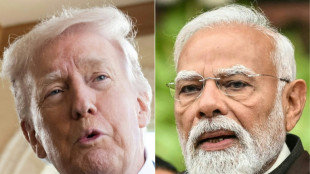 Trump cuts India tariffs, says Modi will stop buying Russian oil
Trump cuts India tariffs, says Modi will stop buying Russian oil
-
Borthwick backs Itoje to get 'big roar' off the bench against Wales

-
 Twenty-one friends from Belgian village win €123mn jackpot
Twenty-one friends from Belgian village win €123mn jackpot
-
Mateta move to Milan scuppered by medical concerns: source

-
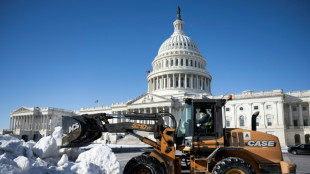 Late-January US snowstorm wasn't historically exceptional: NOAA
Late-January US snowstorm wasn't historically exceptional: NOAA
-
Punctuality at Germany's crisis-hit railway slumps

-
 Gazans begin crossing to Egypt for treatment after partial Rafah reopening
Gazans begin crossing to Egypt for treatment after partial Rafah reopening
-
Halt to MSF work will be 'catastrophic' for people of Gaza: MSF chief

-
 Italian biathlete Passler suspended after pre-Olympics doping test
Italian biathlete Passler suspended after pre-Olympics doping test
-
Europe observatory hails plan to abandon light-polluting Chile project

-
 Iran president orders talks with US as Trump hopeful of deal
Iran president orders talks with US as Trump hopeful of deal
-
Uncertainty grows over when US budget showdown will end
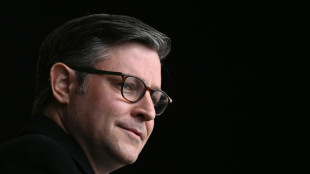
-
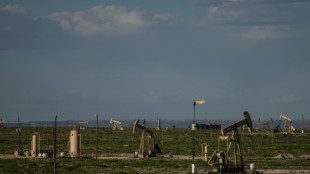 Oil slides, gold loses lustre as Iran threat recedes
Oil slides, gold loses lustre as Iran threat recedes
-
Russian captain found guilty in fatal North Sea crash

-
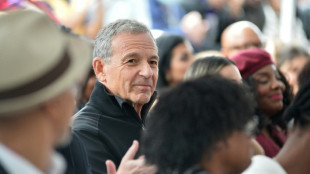 Disney earnings boosted by theme parks, as CEO handover nears
Disney earnings boosted by theme parks, as CEO handover nears
-
Sri Lanka drop Test captain De Silva from T20 World Cup squad

-
 France demands 1.7 bn euros in payroll taxes from Uber: media report
France demands 1.7 bn euros in payroll taxes from Uber: media report
-
EU will struggle to secure key raw materials supply, warns report

-
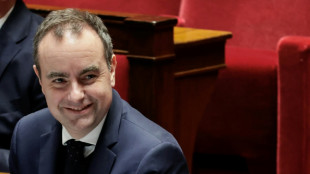 France poised to adopt 2026 budget after months of tense talks
France poised to adopt 2026 budget after months of tense talks
-
Latest Epstein file dump rocks UK royals, politics

-
 Arteta seeks Arsenal reinforcement for injured Merino
Arteta seeks Arsenal reinforcement for injured Merino
-
Russia uses sport to 'whitewash' its aggression, says Ukraine minister
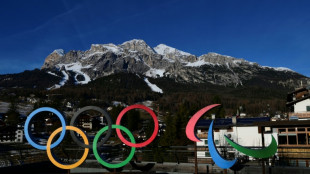
-
 Chile officially backs Bachelet candidacy for UN top job
Chile officially backs Bachelet candidacy for UN top job
-
European stocks rise as oil tumbles, while tech worries weigh on New York

-
 England captain Itoje on bench for Six Nations opener against Wales
England captain Itoje on bench for Six Nations opener against Wales
-
Rahm says golfers should be 'free' to play where they want after LIV defections

-
 More baby milk recalls in France after new toxin rules
More baby milk recalls in France after new toxin rules
-
Rosenior will not rush Estevao return from Brazil

-
 Mercedes ready to win F1 world title, says Russell
Mercedes ready to win F1 world title, says Russell
-
Germany hit by nationwide public transport strike
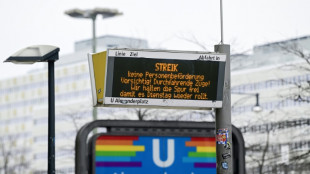
-
 Barca coach Flick 'not happy' with Raphinha thigh strain
Barca coach Flick 'not happy' with Raphinha thigh strain
-
WHO chief says turmoil creates chance for reset
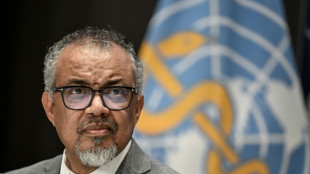

Nearly entire global population breathing polluted air: WHO
A full 99 percent of people on Earth breathe air containing too many pollutants, the World Health Organization said Monday, blaming poor air quality for millions of deaths each year.
Fresh data from the UN health agency showed that every corner of the globe is dealing with air pollution, although the problem is much worse in poorer countries.
"Almost the entire global population (99 percent) breathes air that exceeds WHO air quality limits, and threatens their health," the agency said in a statement.
In its previous report four years ago, WHO had already found that over 90 percent of the global population was affected, but it has since tightened its limits, it said.
"The evidence base for the harm caused by air pollution has been growing rapidly and points to significant harm caused by even low levels of many air pollutants," WHO said.
While UN data last year indicated that pandemic lockdowns and travel restrictions caused short-lived improvements in air quality, WHO said air pollution remains a towering problem.
"After surviving a pandemic, it is unacceptable to still have seven million preventable deaths and countless preventable lost years of good health due to air pollution," Maria Neira, the head of the WHO's department of public health and environment, said in a statement.
WHO's study provides air quality data from more than 6,000 cities and towns across 117 countries.
The findings were alarming, the organisation said, and highlighted the importance of rapidly curbing fossil fuel use.
- 'Healthier energy systems' -
WHO chief Tedros Adhanom Ghebreyesus stressed that worries over soaring energy prices, due in part to Russia's invasion of Ukraine, should help propel change.
"Current energy concerns highlight the importance of speeding up the transition to cleaner, healthier energy systems," he said in a statement.
"High fossil fuel prices, energy security, and the urgency of addressing the twin health challenges of air pollution and climate change, underscore the pressing need to move faster towards a world that is much less dependent on fossil fuels."
The report provides data on concentrations of dangerous particulate matter with a diameter of between 2.5 and 10 micrometres (PM10), and particles with a diameter of less than 2.5 micrometres (PM2.5).
PM2.5 includes toxins like sulfate and black carbon, which pose the greatest health risks since they can penetrate deep into the lungs or cardiovascular system.
And for the first time, the report also provides ground measurements of annual mean concentrations of nitrogen dioxide (NO2), a common urban pollutant, which is associated with respiratory diseases, particularly asthma.
The report found problems related to particulate pollution were far worse in poorer countries, but that most cities had trouble with nitrogen dioxide.
While the air in 17 percent of cities in high-income countries fell below WHO's air quality guidelines for PM2.5 or PM10, less than one percent of cities in low and middle-income countries complied with the recommended thresholds, the report said.
Out of the around 4,000 cities across 74 countries that collected NO2 data, measurements meanwhile showed only 23 percent of people breathed annual average concentrations of the gas that met levels in WHO's recently updated guidelines.
J.Horn--BTB



